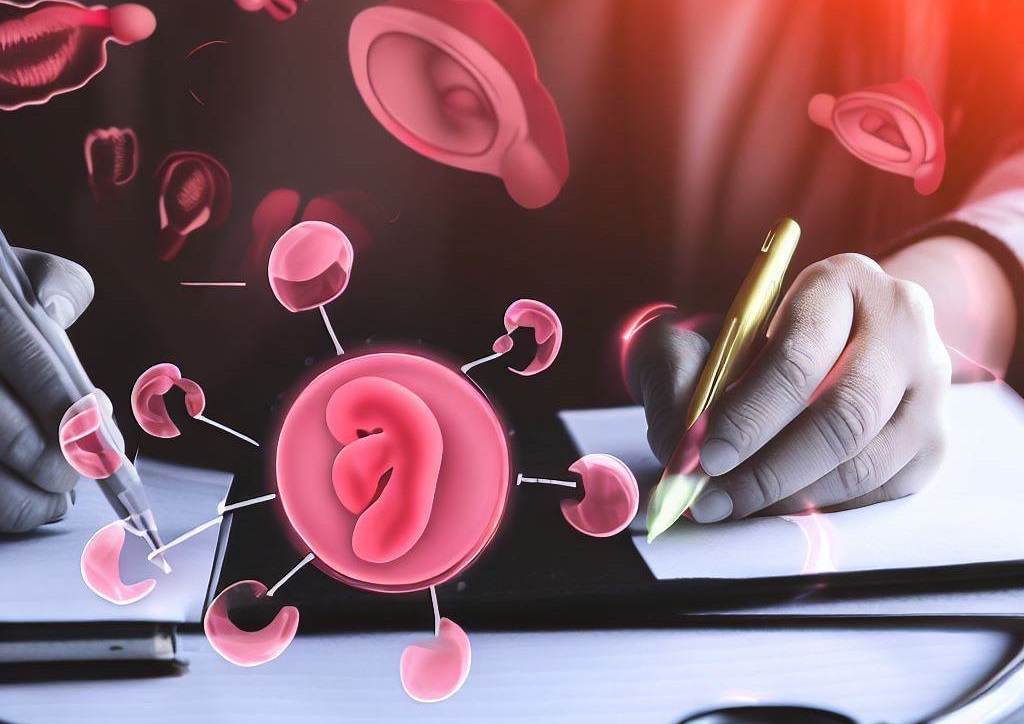According to the Center for Disease Control and prevention (CDC) over 6 million women in the United States from age 15 to 44 have problems with infertility. This means that 10% of American women within that age group have problems getting pregnant or staying pregnant. This a common issue and there are several causes of female infertility. Women suffering from infertility are probably outraged when it comes to looking at the 625,000 plus women who had abortions in 2019. approximately 5% of women in The United States that are still in the reproductive phase experience unintended pregnancies. Wouldn’t it be great if the women that didn’t want a baby could trade places with all the infertile females? Unfortunately, life doesn’t work that way.
In this article, you will learn 6 causes of female infertility and get an understanding of what the word infertility means and simple steps you can take to improve your change of getting pregnant.
Here are 6 Causes of Female Infertility

- Unexplained Infertility
It can be very frustrating to be looking for an answer to infertility and the doctor can only tell you that he does not know, or he does not have any specific answer as to why you cannot become pregnant. Your infertility can be a combination of issues and multiple factors with you and your partner. In many cases the reason for the infertility has never been diagnosed. The key here is not to delay treatment and continue trying to become pregnant.
- Endometriosis
Endometriosis is a condition that usually indirectly affects fertility by damaging the egg or sperm. The condition occurs when tissue implants itself and grows places other than the uterus. Not only does endometriosis cause infertility in some women but it also can interfere with infertility treatment by disrupting the process when an egg is implanted.
- Damaged Fallopian Tubes
Fallopian tubes can be blocked or damaged when a woman has had pelvic inflammatory disease which is an infection of the uterus and fallopian tubes. This disease is caused by sexually transmitted infections such as gonorrhea or chlamydia. Once this damage occurs, it can stop the sperm from reaching the egg or it can keep the fertilized egg from getting into the uterus. Many women have experienced an ectopic pregnancy. An ectopic pregnancy happens when the egg is fertilized and implants itself into the fallopian tubes or anywhere else other that the uterus where it should be. The fallopian tubes can become damaged from previous surgeries on the pelvis or abdomen.
- Cervical Problems
The cervix connects the uterus to the vagina and is in the lower part of the womb or uterus. The narrowing of the cervix which is a condition called cervical stenosis can be caused by damage to the cervix here. This can interfere with the process of the egg being implanted as well as increase a woman’s risk of miscarrying.
- Uterine Issues
Some women experience problems with their uterus from the time they are born. There have been females born with an upside-down uterus or a uterus with an unusual shape. These two things can cause problems with both becoming pregnant and staying that way. Another common problem and condition among women are 5 words or myomas also known as benign polyps or tumors. Although these growths are non-cancerous, they can cause problems by blocking the fallopian tubes or interfering with the implantation of eggs. the good news is that many women that had polyps or fibroids are still able to become pregnant and deliver healthy babies.
- Ovulation Disorders
When it comes to infertility, ovulation disorders are the main culprits and account for most cases of infertility and women. Problems in the ovaries or with the regulation of reproductive hormones by the pituitary gland can both cause ovulation disorders. Let’s get familiar with what these ovulation disorders are.
- Polycystic ovary syndrome PCOS – PCOS affects ovulation and causes a hormonal imbalance. One of the most common causes of female infertility is PCOS. This hormone imbalance has been known to cause abnormal hair growth from the face or body, acne and is associated with insulin resistance and obesity.
- Hypothalamic Dysfunction – The luteinizing hormone and follicle stimulating hormone are responsible for stimulating ovulation on a monthly basis and they are produced by the pituitary gland. The production of these two hormones is often disrupted and can affect ovulation. If a woman has a very high or low body weight, recently lost or gained a substantial amount of weight or was under and excessive amount of emotional or physical stress, these hormones become unbalanced. A woman begins to have irregular periods or starts to miss periods, this could be a sign of hypothalamic dysfunction.
- Excessive prolactin – Hyperprolactinemia is the result of the pituitary gland producing too much prolactin. When this happens the production of estrogen is reduced and can cause infertility. In some instances When you’re taking medication for other conditions there is also, and excessive amount of prolactin produced by the pituitary gland.
- Premature ovarian failure – premature ovarian failure is also called primary ovarian insufficiency which is usually caused by premature loss of eggs from the ovaries or an auto immune response. It’s possible this could be a result of chemotherapy or genetics. It lowers estrogen production in women that are under 40 years old, and the ovaries no longer produces eggs.
About one third of the time infertility is due to factors involved with the female. Another third of the time it is due to the male and the female. In many cases it is difficult to diagnose the actual cause of infertility. If you have been infertile, you should not give up hope and be patient because many couples have been able to conceive a child without any type of treatment. Most doctors recommend If you are still in your reproductive years and under the age of 35 you should try to get pregnant for at least a year before seeking testing or treatment. You should wait until after six months to discuss your infertility with your doctor if you are between the ages of 35 and 40. If you are infertile and trying to become pregnant ask her age 40 the doctor may suggest testing and treating you immediately due to your age.
There were also extenuating circumstances where the doctor will want to treat you immediately that are related to your health. If you have a history of painful or irregular periods, repeated miscarriages, endometriosis, cancer treatment or your partner has known fertility problems you should begin your testing and treatment right away.



